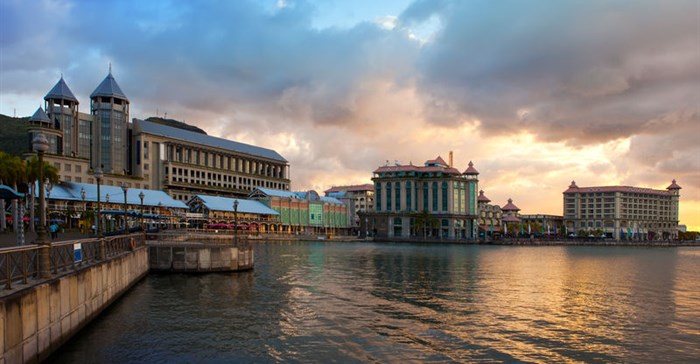Five Africa cities feature in the top 100 rankings of the 19th annual Mercer Quality of Living study, with Port Louis in Mauritius, topping the Africa chart at an overall 84th position.

Port Louis ©Konstantin Kulikov via
123RF“Economic instability, social unrest, and growing political upheaval all add to the complex challenge multinational companies face when analysing quality of living for their expatriate workforce,” said Ilya Bonic, senior partner and president of Mercer’s career business.
“For multinationals and governments it is vital to have quality of living information that is accurate, detailed, and reliable. It not only enables these employers to compensate employees appropriately, but it also provides a planning benchmark and insights into the often-sensitive operational environment that surrounds their workforce.
“In uncertain times, organisations that plan to establish themselves and send staff to a new location should ensure they get a complete picture of the city, including its viability as a business location and its attractiveness to key talent,” Bonic added.
Vienna occupies first place for overall quality of living for the 8th year running, with the rest of the top 10 list mostly filled by European cities: Zurich is in second place, with Munich (4), Dusseldorf (6), Frankfurt (7), Geneva (8), Copenhagen (9), and Basel, a newcomer to the list, in 10th place.
The only non-European cities in the top 10 are Auckland (3) and Vancouver (5). The highest ranking cities in Asia and Latin America are Singapore (25) and Montevideo (79), respectively.
Mercer’s Quality of Living survey also includes a city infrastructure ranking that assesses each city’s supply of electricity, drinking water, telephone and mail services, and public transportation as well as traffic congestion and the range of international flights available from local airports.
Singapore tops the city infrastructure ranking, followed by Frankfurt and Munich both in 2ndplace. Baghdad (230) and Port au Prince (231) rank last for city infrastructure.
Mercer’s authoritative survey is one of the world’s most comprehensive and is conducted annually to enable multinational companies and other organisations to compensate employees fairly when placing them on international assignments.
In addition to valuable data, Mercer’s Quality of Living surveys provide hardship premium recommendations for over 450 cities throughout the world; this year’s ranking includes 231 of these cities.
African cities
Port Louis is the only Africa city which managed to fall within the top 100 rankings with the highest for infrastructure in 94thplace. Cape Town missed it with 1 position ranking at 101st position followed by Tunis (104) in Tunisia and Victoria (109) in Seychelles concluding the top 4 Africa cities. Lack of infrastructure remains a challenge within Africa, with N’Djamena (224), Bangui (226), Conakry (227) in Guinea Republic and Brazzaville (228) in the Republic of the Congo forming the lowest rankings.
In the Middle East, Dubai (74) continues to rank highest for quality of living across the Middle East, rising one position in this year’s ranking, followed closely by Abu Dhabi (79), which climbed three spots. Damascus (225) in Syria, Sana’a (229) in Yemen and Baghdad (231) in Iraq are the region’s three lowest-ranked cities for quality of living.
Dubai also ranks highest for infrastructure in 51st place. Only five other cities in this region make the top 100, including Tel Aviv (56), Abu Dhabi (67), Port Louis (94), Muscat (97), and upcoming host of the 2022 FIFA World Cup, Doha in Qatar, which ranks 96th for infrastructure. Cities in the Middle Eastern countries dominate the bottom half of the table for infrastructure, with Damascus (224), Sana’a (229), and Baghdad (230) ranking the lowest.
“The success of foreign assignments is influenced by issues such as ease of travel and communication, sanitation standards, personal safety, and access to public services,” said Slagin Parakatil, principal at Mercer and responsible for its quality of living research. “Multinational companies need accurate and timely information to help calculate fair and consistent expatriate compensation – a real challenge in locations with a compromised quality of living.”
Parakatil added, “A city’s infrastructure, or rather the lack thereof, can considerably affect the quality of living that expatriates and their families experience on a daily basis. Access to a variety of transport options, being connected locally and internationally, and access to electricity and drinkable water are among the essential needs of expatriates arriving in a new location on assignment. A well-developed infrastructure can also be a key competitive advantage for cities and municipalities trying to attract multinational companies, talent, and foreign investments.”
He continued: “Cities that rank high in the city infrastructure list provide a combination of top-notch local and international airport facilities, varied and extended coverage through their local transportation networks, and innovative solutions such as smart technology and alternative energy. “Most cities now align variety, reliability, technology, and sustainability when designing infrastructure for the future,” Parakatil concluded.


























